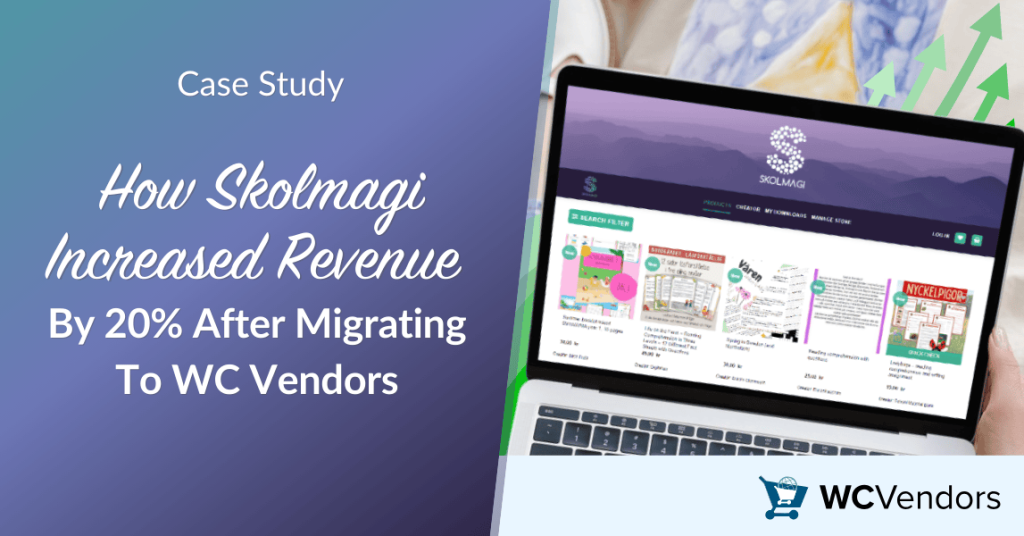
When Michael Widegren co-founded Skolmagi, his goal was to help teachers share their expertise while building sustainable marketplace revenue. The platform quickly gained traction with educators and schools across Sweden, offering classroom-ready resources created by teachers, for teachers.
However, growth brought new challenges. With over 1,400 vendors and more than 35,000 products, the original multi-vendor plugin couldn’t keep up. Skolmagi made the switch from WCFM Marketplace to WC Vendors. And that decision paid off.
In this case study, we’ll show how the migration led to faster performance, a cleaner vendor dashboard, and a 20% increase in marketplace revenue. For WooCommerce marketplace owners looking to increase sales, there’s a lot to learn from Skolmagi’s experience.
Skolmagi At A Glance
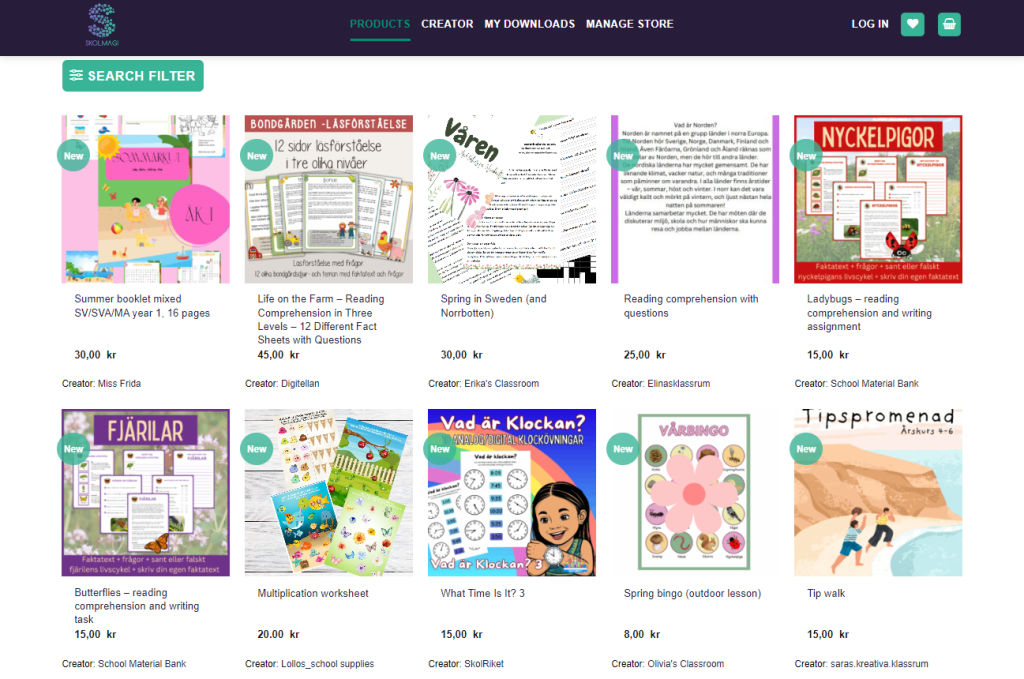
Skolmagi was founded to give teachers a single, organized place to share classroom materials. What started as a simple idea grew into a full WooCommerce marketplace for educational content.
Teachers contribute printable worksheets, quizzes, medals, and other resources—some free, others paid. By sharing their work, they help peers while also earning extra income.
“With Skolmagi, many of my vendors have gotten a second income. Some of them have created new companies and started new adventures that started with Skolmagi.”
— Michael Widegren, Founder
The platform primarily serves Swedish educators, but it’s also become popular among parents. Its appeal lies in its high-quality content, contributor-driven model, and a clean interface that helps users find what they need quickly.
The Challenge Before Migration
As Skolmagi scaled, the platform began to strain under the weight of its own growth. Built on the WCFM Marketplace plugin, the platform began facing performance issues that affected both the vendor and customer experience.
“At times the site was very slow… The growth happened so fast, and it was hard work to maintain speed,” Michael recalled.
The marketplace was averaging nearly 200,000 unique visitors each month. Managing vendor commissions, payouts, and reports became a major drain on time. Many of the vendors were teachers with limited technical experience, and they needed a simpler way to manage their storefronts.
It was clear the marketplace had outgrown its plugin. The team needed a solution that could support its growth, simplify vendor operations, and reduce administrative overhead.
That’s when Michael began looking for alternatives and found WC Vendors.
Why Skolmagi Chose WC Vendors

Skolmagi had outgrown its previous setup, and improving marketplace revenue meant finding a vendor plugin that could support better performance, usability, and long-term growth. After evaluating their options, the team chose WC Vendors.
“Pretty much everything has improved,” Michael shared. “The site is faster, the frontend is cleaner for vendors, and the reporting pages have improved, especially in the latest release.”
Here are the key reasons Skolmagi made the switch to our WooCommerce marketplace plugin:
1. Vendor dashboard
Most of Skolmagi’s vendors are teachers, not eCommerce professionals. A fast, intuitive vendor dashboard made it easier for them to upload products, track sales, and manage their stores without extra help or training.
2. Automated commissions and streamlined payouts
Manual payouts were time-consuming and error-prone. With WC Vendors, Skolmagi was able to automate commission tracking and export payout reports directly to Excel. This allowed them to pay vendors on time while cutting down on admin work.
3. Clear reporting for vendors and admins
Vendors can now view product performance, sales trends, and payout history from a single location. For the Skolmagi team, better reporting means fewer support requests and more transparency across the marketplace.
4. Support that understands marketplace needs
Michael worked closely with the WC Vendors support team throughout the migration. We helped troubleshoot specific issues and connected him with a developer experienced in large WooCommerce marketplaces. This hands-on support helped make a complex transition more manageable.
“Josh (CEO of WC Vendors) understood my vision and ideas,” he said. “Even complex technical issues were resolved quickly, often with referrals to trusted developers.”
These features gave Skolmagi the stability and support needed to continue growing its WooCommerce marketplace.
Vendor Migration: How Skolmagi Did It Right
At the time of vendor migration, Skolmagi was operating a WooCommerce marketplace with between 15,000 and 20,000 products and several hundred active vendors.
Preserving accurate commission data, product listings, and vendor accounts was a priority, as any disruption could directly impact marketplace revenue.
“The migration process was quite a handful because of the size of my site,” Michael explained. “There were some issues with old commissions that didn’t want to show.”
To reduce risk, Michael reached out to WC Vendors support early. We provided technical guidance and connected him with a trusted developer to assist with the process.
Together, they resolved the issues with historical commission data and ensured that vendor and product records were correctly transferred. After the migration, the site became more stable, and administrative tasks like payouts became easier to manage.
Skolmagi’s experience shows that even large migrations can be successful when planned carefully and supported by a team that understands the platform.
For a comprehensive walkthrough of the WCFM to WC Vendors migration process, refer to our dedicated case study: WCFM Marketplace Migration Case Study
Results After Migrating To The WC Vendors Plugin
For Skolmagi, improving marketplace revenue was a key objective. After migrating to the WC Vendors plugin, the platform saw a 20% increase in revenue.
Michael credits this growth to faster site performance, a more user-friendly vendor dashboard, and improved customer experience.
“Improved customer experience, the site is so much faster, and thanks to easy onboarding we have more vendors than ever now.”
Below is a comparison of key metrics before and after the migration:
| Metric | Before WC Vendors | After WC Vendors |
|---|---|---|
| Marketplace Revenue | Baseline | +20% increase |
| Total Vendors | Hundreds | 1,400+ |
| Products Listed | ~15,000–20,000 | 35,000+ |
| Admin Payout Processing Time | Manual, time-consuming | Streamlined via Excel export |
| Vendor Satisfaction | Mixed | Significantly improved |
The chart below provides a visual summary of these improvements, highlighting the measurable growth in marketplace revenue, and vendor participation.
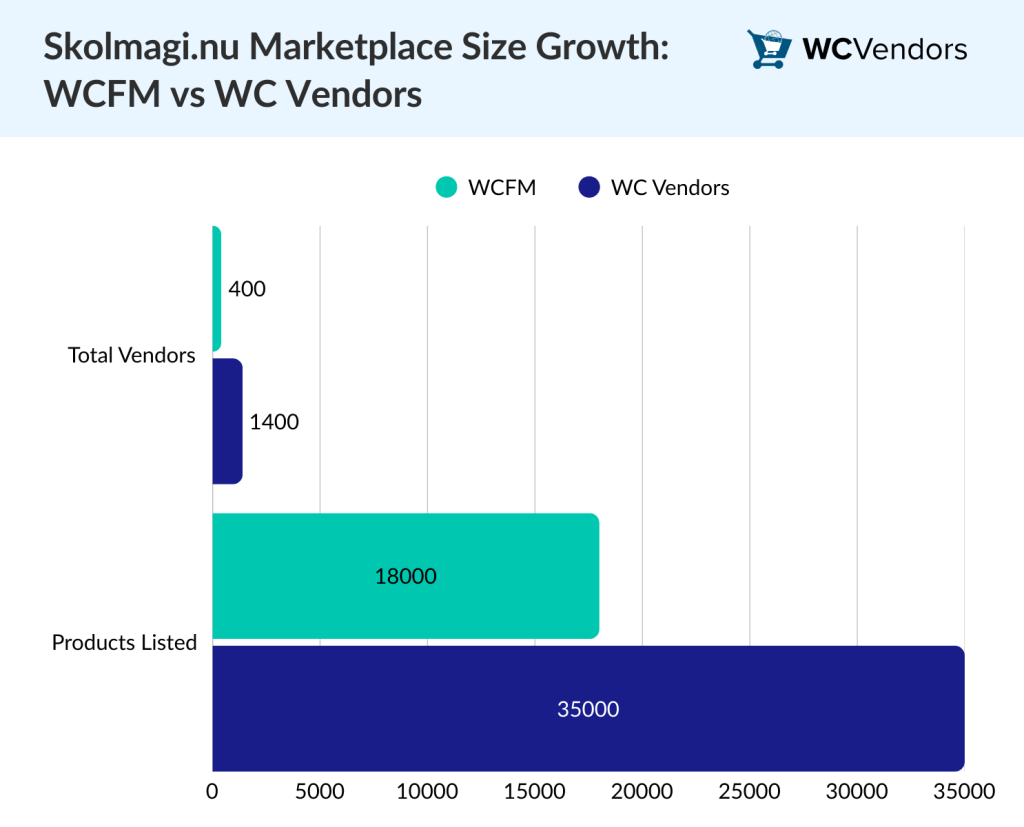
One time-saving improvement was the use of WC Vendors’ commission export feature. Skolmagi’s team now exports payout data directly to Excel and imports it into their accounting system, reducing hours of monthly admin work.
Beyond technical upgrades, the marketplace continues to support a growing community of educators. Many vendors have built side businesses, and students now have access to more classroom-ready resources.
The Real Impact Of A Multi-Vendor Marketplace For Educators
For Skolmagi, increasing marketplace revenue has also led to real, measurable impact for educators and families. The platform has helped teachers turn their classroom knowledge into income while expanding access to quality learning materials.
“Because of Skolmagi, almost 40 new businesses have been created. Lives have been changed,” said Michael.
For vendors, the impact included:
- Turning classroom knowledge into extra income
- Starting small businesses using their teaching materials
- Managing stores without technical experience using the vendor dashboard
- Reaching new audiences beyond their local schools
For buyers, especially parents and schools:
- Supporting teachers directly by purchasing their work
- Gaining access to over 35,000 classroom-tested products
- Filling resource gaps not covered by traditional publishers
As the WooCommerce marketplace continues to grow, its catalog expands with each new vendor. The result is a self-sustaining ecosystem that supports both educators and students across Sweden.
Strategies To Grow A Multi-Vendor Marketplace
Skolmagi’s experience offers practical strategies that marketplace owners can apply to grow marketplace revenue, improve operations, and support their vendors.
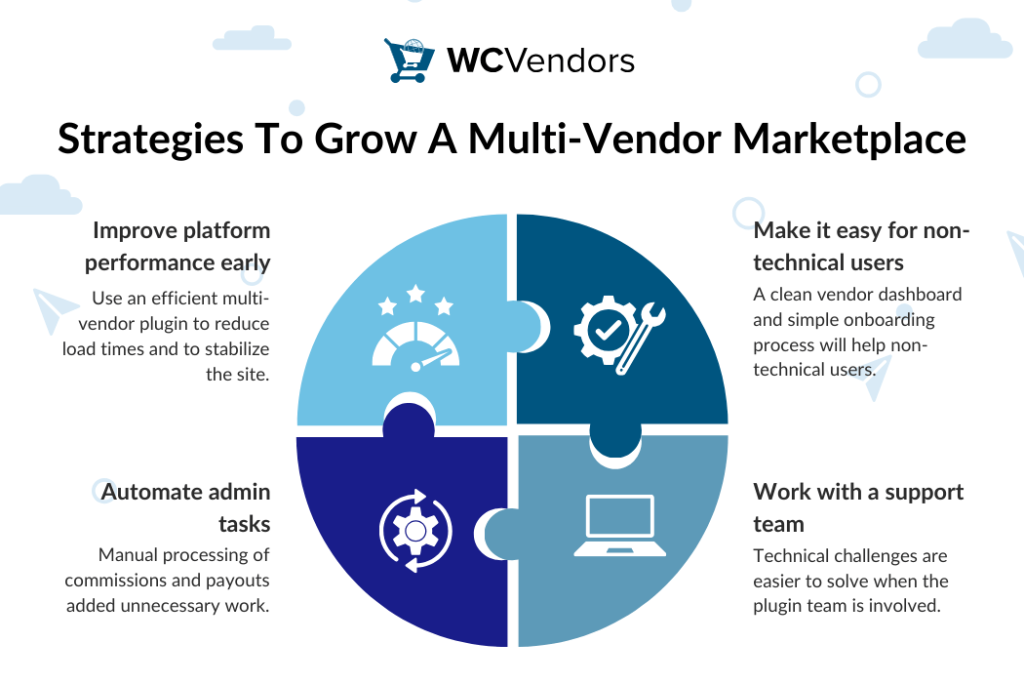
These lessons are especially relevant for WooCommerce marketplaces looking to scale efficiently.
1. Improve platform performance early
Slow site speed can reduce sales and frustrate vendors. Skolmagi struggled with performance issues as traffic grew. Switching to a more efficient multi-vendor plugin helped reduce load times and stabilize the site for nearly 200,000 monthly visitors.
2. Automate admin tasks where possible
Manual processing of commissions and payouts added unnecessary work. By using WC Vendors’ built-in reporting and commission export features, Skolmagi was able to simplify financial tasks and save hours each month.
3. Make it easy for non-technical users to sell
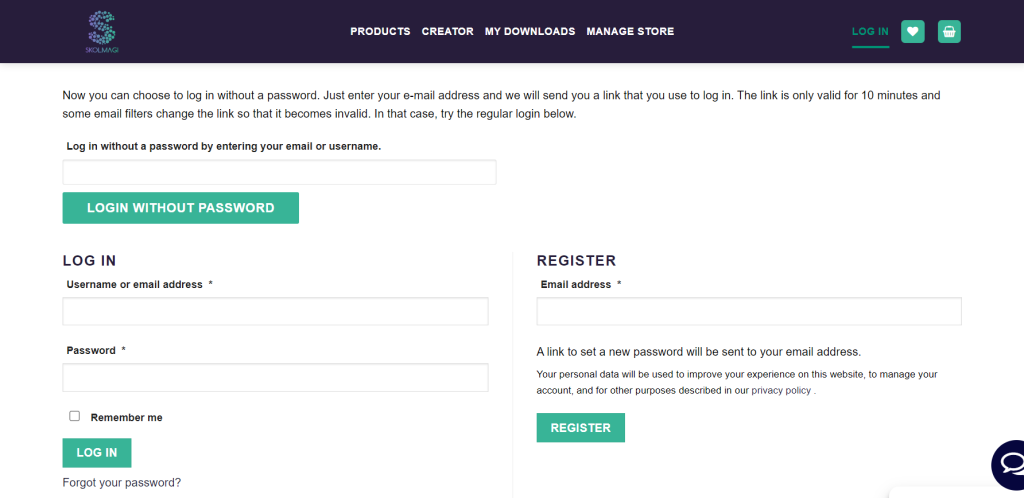
Most vendors on Skolmagi are teachers, not eCommerce professionals. A clean vendor dashboard and simple onboarding process helped more educators create and manage their own stores.
The vendor registration process is also straightforward. New sellers can join using just their email address, with or without a password.
4. Work with a support team that understands your marketplace
Technical challenges are easier to solve when the plugin team is involved. Michael credited part of Skolmagi’s success to working directly with WC Vendors support and a referred developer during their migration process.
“Just do it. The support is fantastic. They go way beyond what they need to help.”
— Michael Widegren, Founder
By focusing on performance, automation, usability, and support, Skolmagi created a foundation for long-term marketplace revenue growth.
Conclusion
Skolmagi’s transition from WCFM to WC Vendors highlights how choosing the right marketplace plugin can lead to measurable improvements in performance, vendor satisfaction, and overall marketplace revenue. If you’re running a WooCommerce marketplace that’s starting to feel the strain of growth, this case study offers a clear path forward.
Explore the full story:
- Skolmagi At A Glance
- The Challenge Before Migration
- Why Skolmagi Chose WC Vendors
- Vendor Migration: How Skolmagi Did It Right
- Results After Migrating To The WC Vendors Plugin
- The Real Impact Of A Multi-Vendor Marketplace For Educators
- Strategies To Grow A Multi-Vendor Marketplace
Skolmagi’s experience proves that with the right tools and support, it’s possible to scale without sacrificing quality or control, benefiting both marketplace operators and the communities they serve.
If you’re exploring solutions for your own WooCommerce marketplace, take a moment to review what WC Vendors offers: View plans and features.

